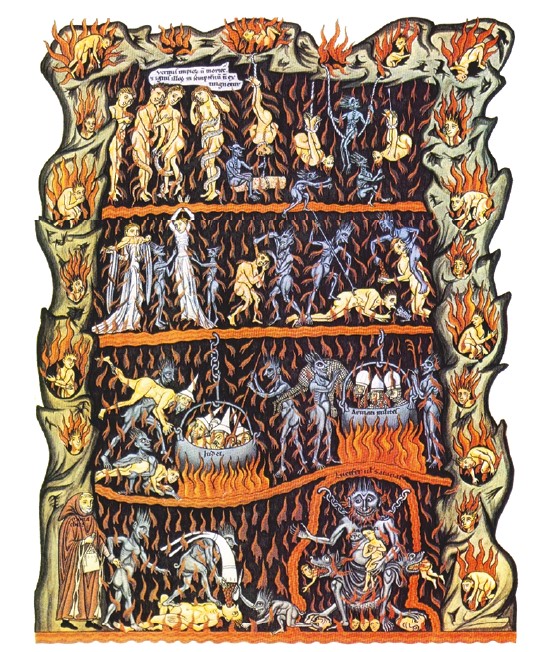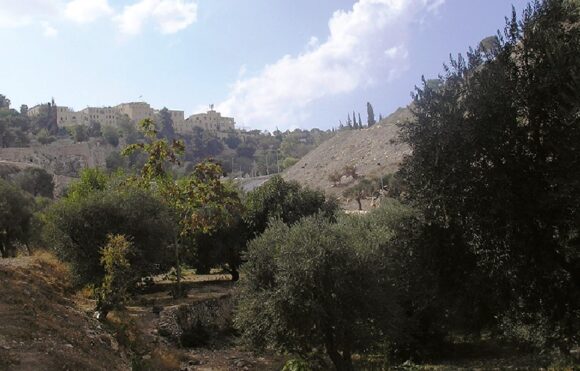Jesus says a lot about hell fire and brimstone as the punishment for the wicked. Why don’t Christadelphians believe in it?
ED:
JESUS MADE IT CLEAR that when he returns there will be a judgement of those who know the Gospel. And he described this judgement in very colourful ways:
But I say to you that everyone who is angry with his brother will be liable to judgement; whoever insults his brother will be liable to the council; and whoever says, ‘You fool!’ will be liable to the hell of fire. (Matthew 5:21–22).
The Son of Man will send his angels, and they will gather out of his kingdom all causes of sin and all law-breakers, and throw them into the fiery furnace. In that place there will be weeping and gnashing of teeth. Then the righteous will shine like the sun in the kingdom of their Father (Matthew 13:41–43).
And if your eye causes you to sin, tear it out. It is better for you to enter the kingdom of God with one eye than with two eyes to be thrown into hell, ‘where their worm does not die and the fire is not quenched’ (Mark 9:47–48).
Then he will say to those on his left, ‘Depart from me, you cursed, into the eternal fire prepared for the devil and his angels… And these will go away into eternal punishment, but the righteous into eternal life” (Matthew 25:41, 46).
The Bible’s promise to those who faithfully follow Christ is eternal life in the Kingdom of God: ‘Fear not, little flock, for it is your Father’s good pleasure to give you the kingdom’ (Luke 12:32). The Kingdom is described in detail in many places in the Bible; but what are we to make of the fate of those who are condemned at the judgement of Christ?
As always, the key is in the Old Testament. The prophecy of Isaiah abounds with pictures of the Kingdom (for example in chapters 2 and 35). Isaiah’s final chapter is a vision of the beautified city of Jerusalem, a place of pilgrimage for the blessed peoples of the Kingdom. But it ends on an unexpected and shocking note: ‘And they shall go out and look on the dead bodies of the men who have rebelled against me. For their worm shall not die, their fire shall not be quenched, and they shall be an abhorrence to all flesh’ (Isaiah 66:24).
Putting this vision together with other passages which describe the establishment of the Kingdom, such as Psalm 2 and Ezekiel 39, we see that it will not be a peaceful process: the nations of the earth will oppose Christ when he returns, and there will be terrible carnage. The aftermath of the battle will not be immediately taken away—it will become a visual aid for the warning and education of the earth’s population.
It seems as though the fate of those who are rejected at Christ’s judgement is to be released into the devastation of the final battle, and perish along with Christ’s enemies. This is the fate that is described as the ‘hell of fire’ (Matthew 5:21–22) and the ‘fiery furnace’ (Matthew 13:42). ‘Hell “where their worm does not die and the fire is not quenched”’ (Mark 9:48) is a direct reference to Isaiah 66:24.
For the Jews of Jesus’ time there was a real life example of ‘hell’. It was the Valley of Hinnom on the south of Jerusalem, which was the city’s rubbish dump. It would stink, and fires were continually breaking out there due to the gases released by the decomposing matter. The Jews called this place Gehenna, and when we read in an English Bible Jesus speaking of ‘hell’, he was usually using this word ‘Gehenna’. He was not describing an actual place, he was using a familiar visual aid.
The phrases ‘eternal fire’ and ‘eternal punishment’ in Matthew 25, which are contrasted with ‘eternal life’, seem at first reading to be describing an unending state of torture for those who are condemned at the judgement.
However this is not compatible with what we know of God’s character: ‘The Lord is merciful and gracious, slow to anger and abounding in steadfast love. He will not always chide, nor will he keep his anger for ever’ (Psalm 103:8–9). Also, we know that God’s ultimate purpose with His creation is to be “all in all” in a perfected universe (1 Corinthians 15:28). There will be no place for hell when God is “all in all”. So it appears that the phrases ‘eternal fire’ and ‘eternal punishment’ describe not an ongoing punishment but an ignominious and permanent death.
So the eternal hell-fire of popular culture is not correct. However, we should be in no doubt as to the horror of the fate that awaits those who are condemned by Christ when he returns. He presents us with a stark choice in graphic language—there are those who will be thrown into the fiery furnace where there will be weeping and gnashing of teeth, and those who will shine like the sun in the kingdom of their Father (Matthew 13:41–43).



